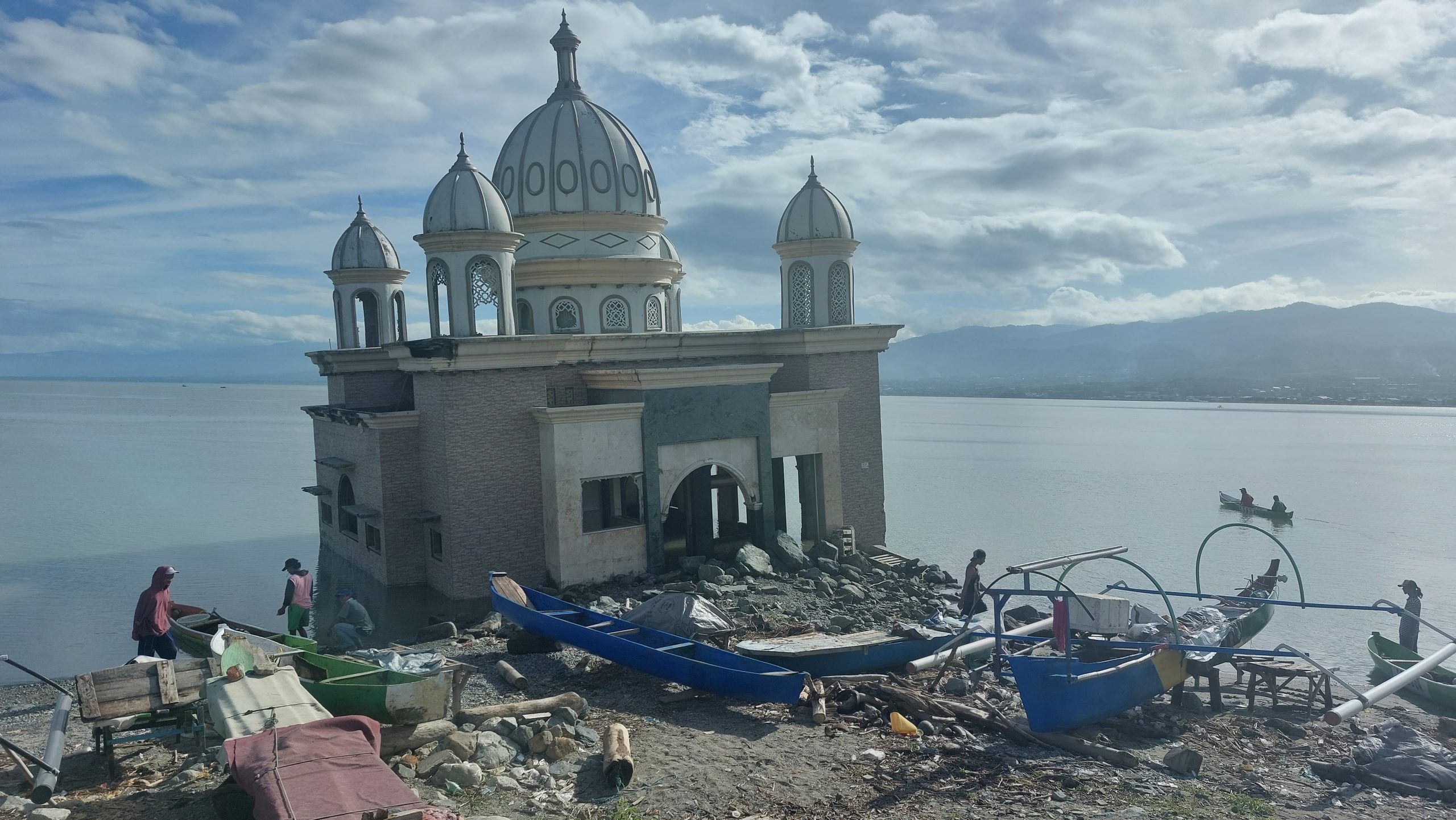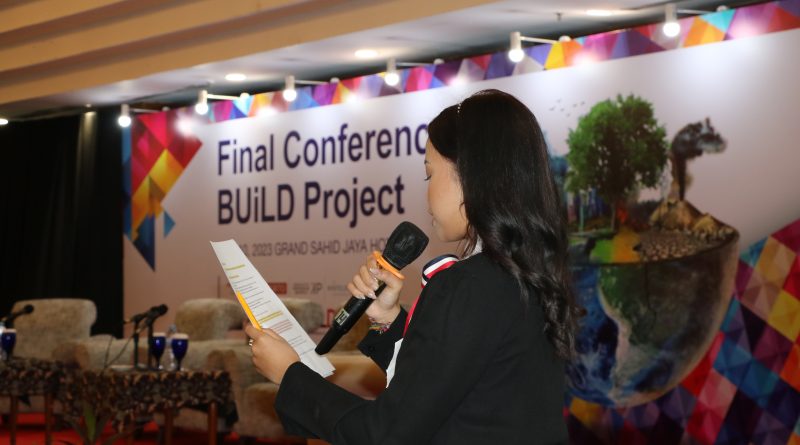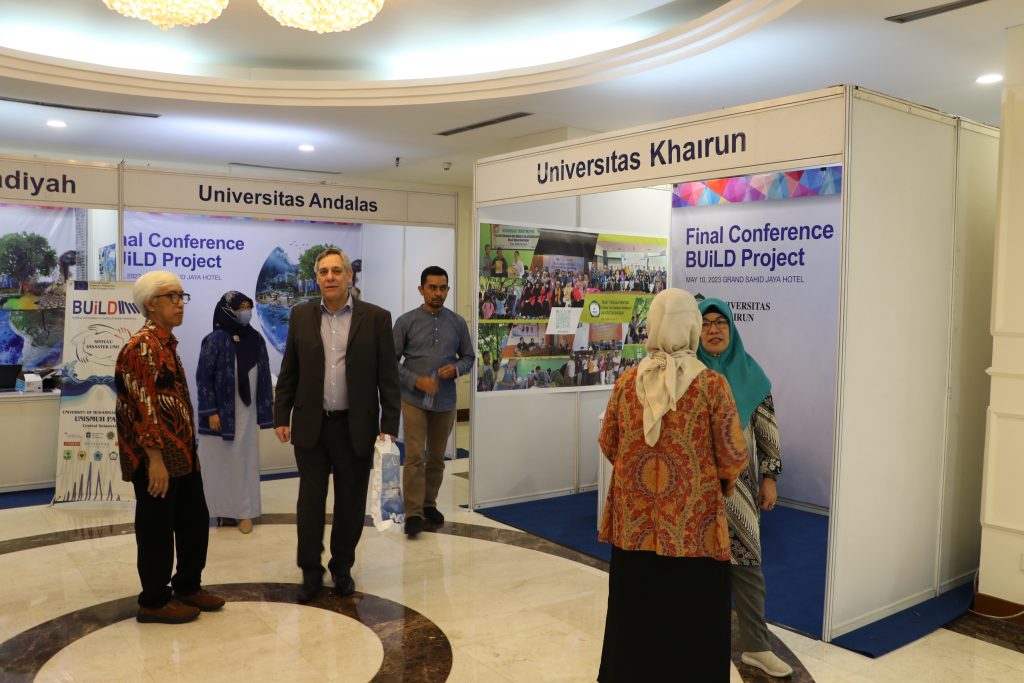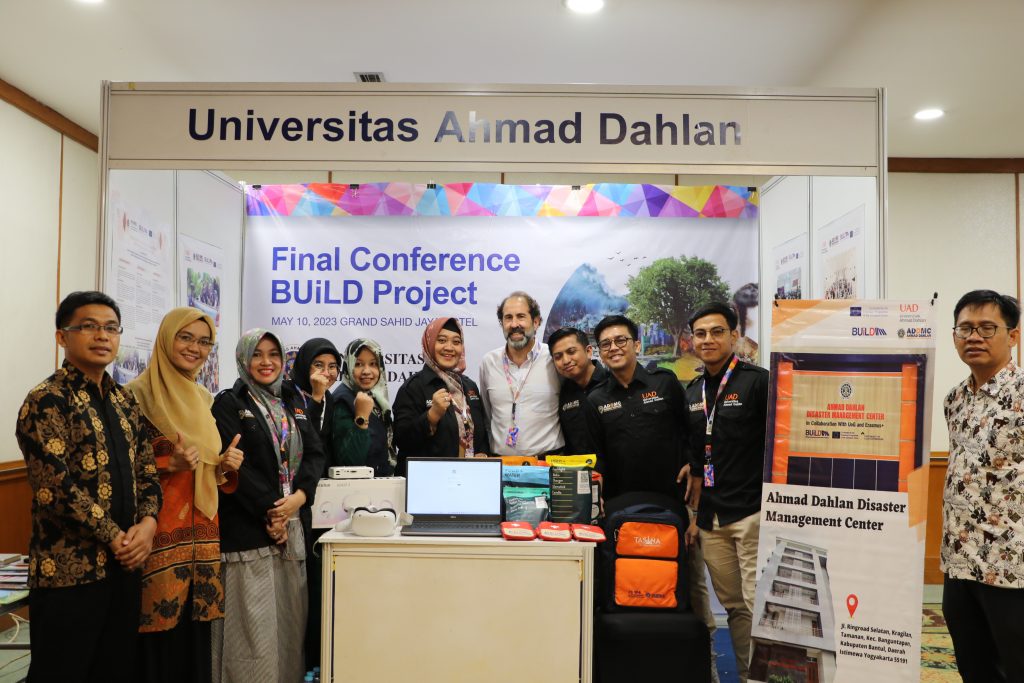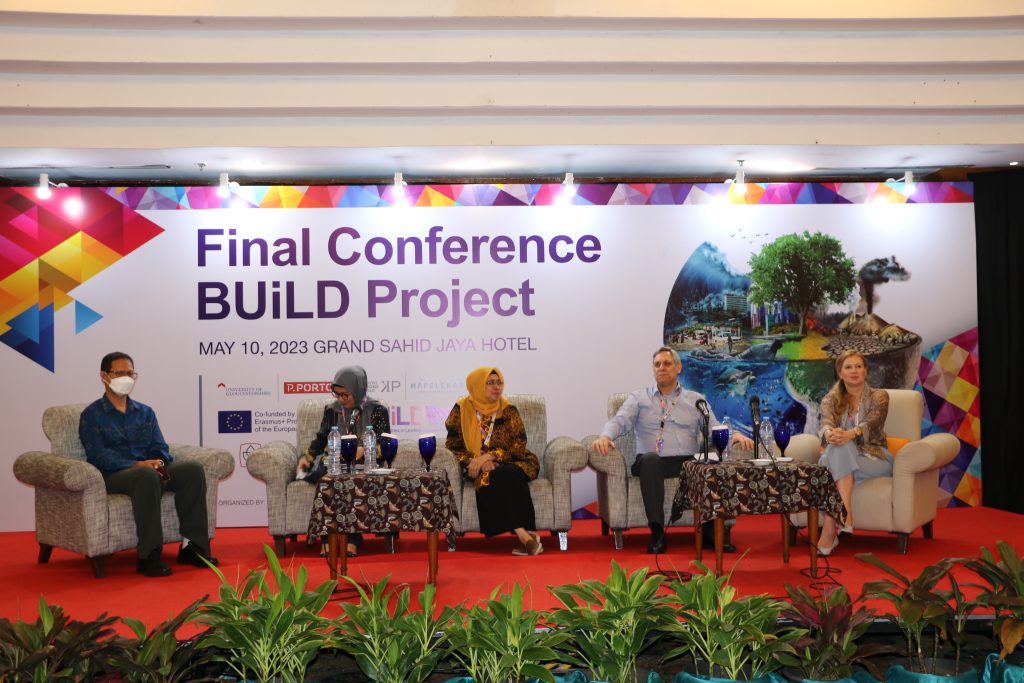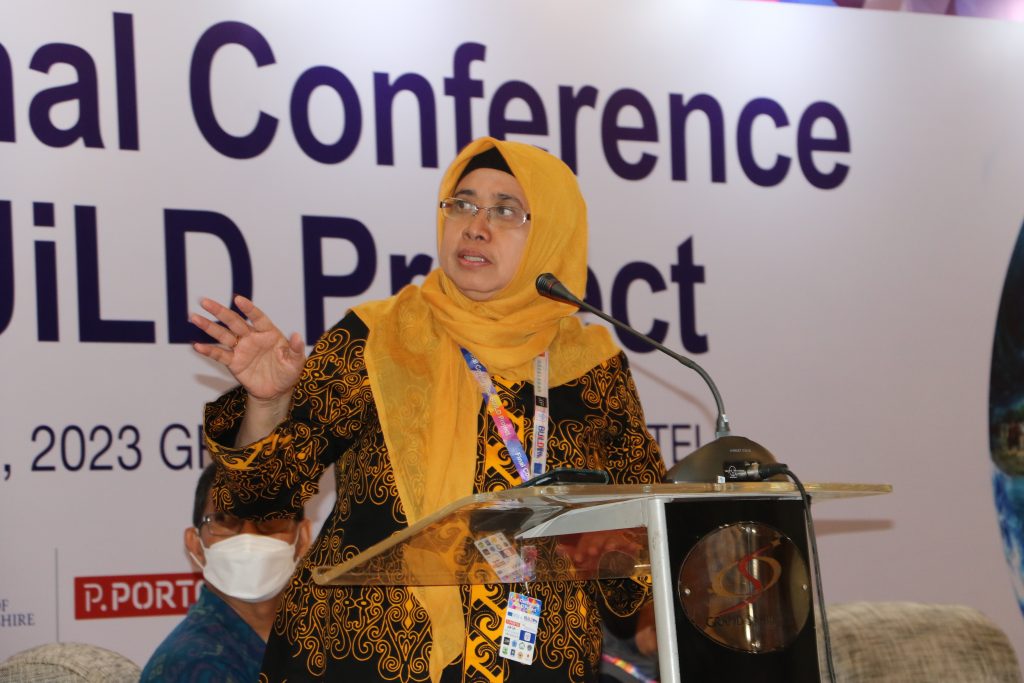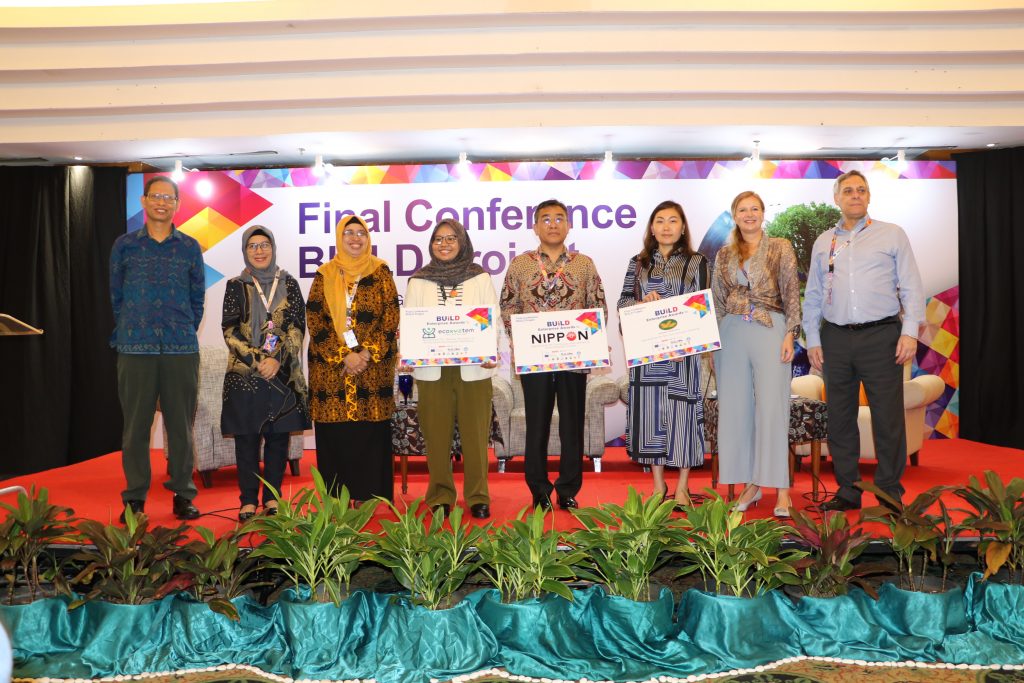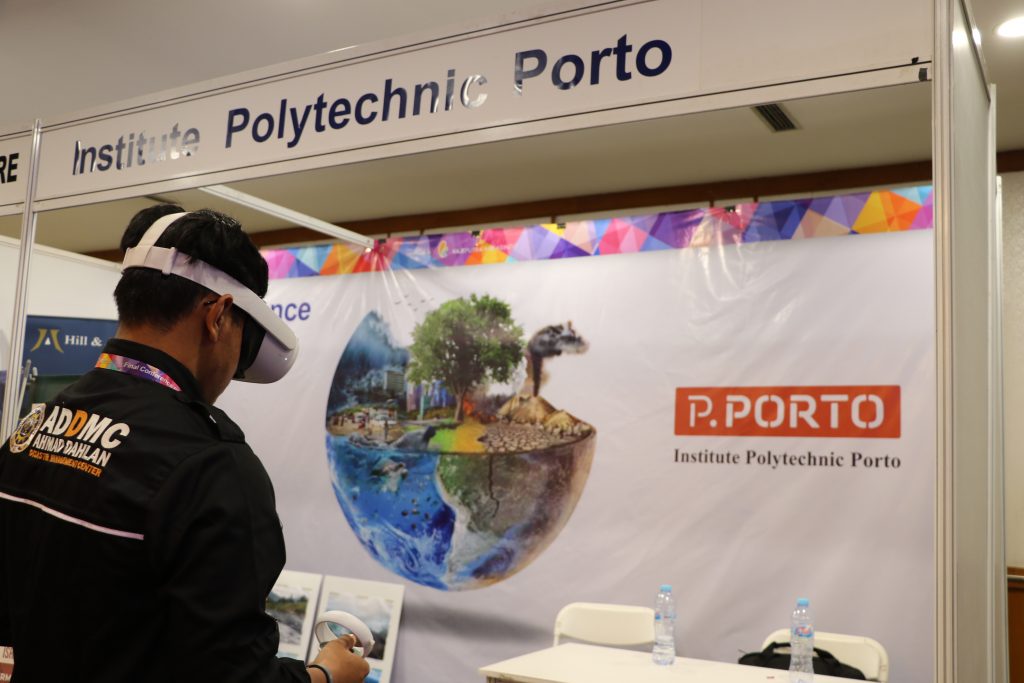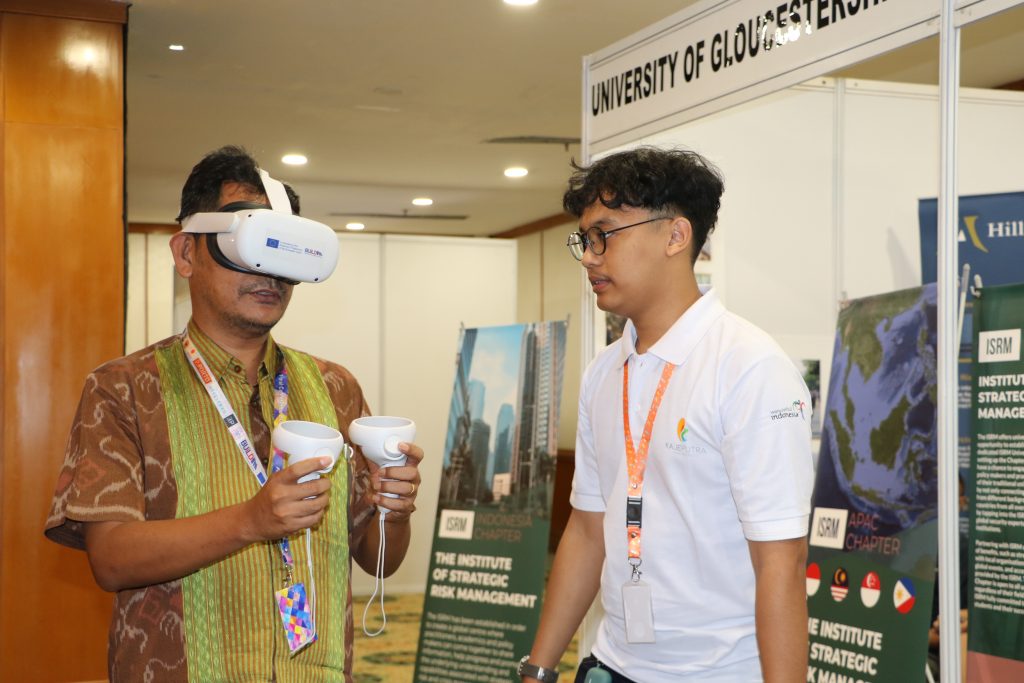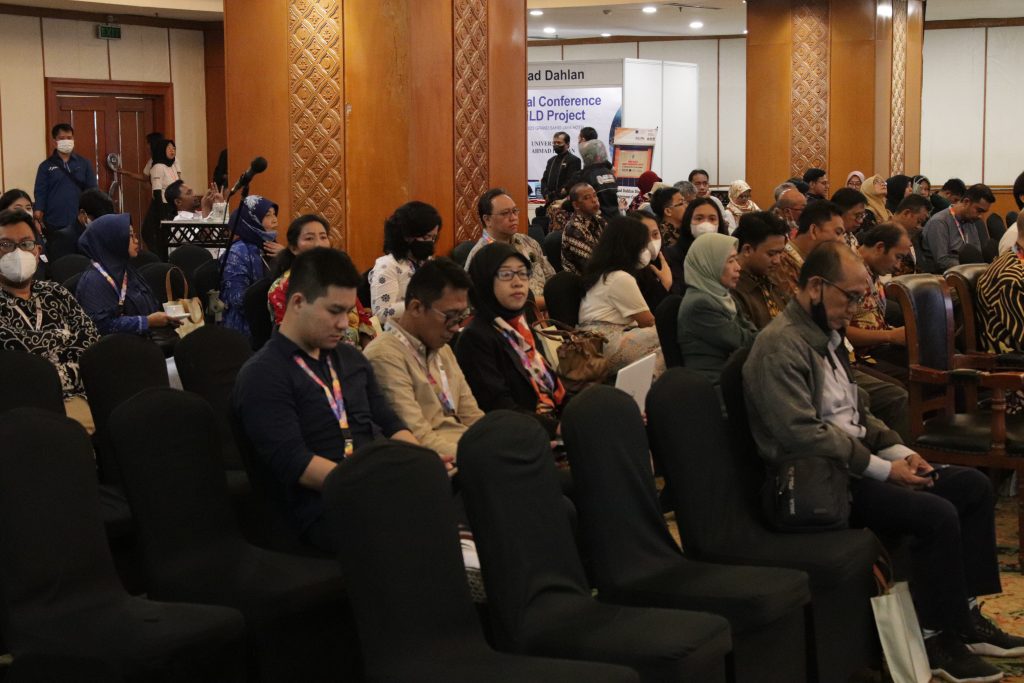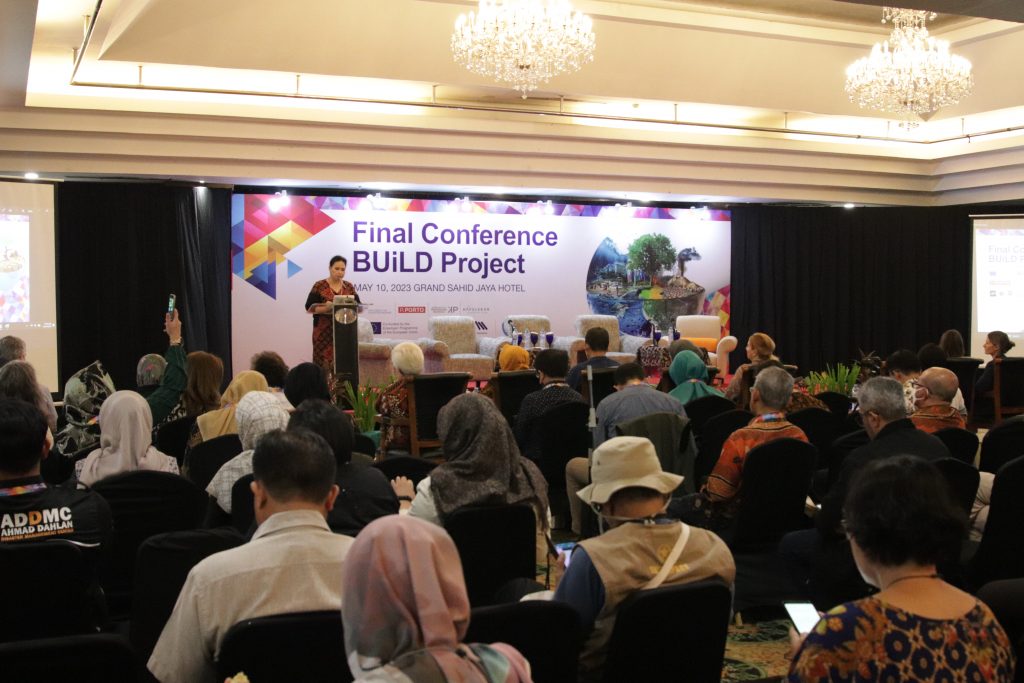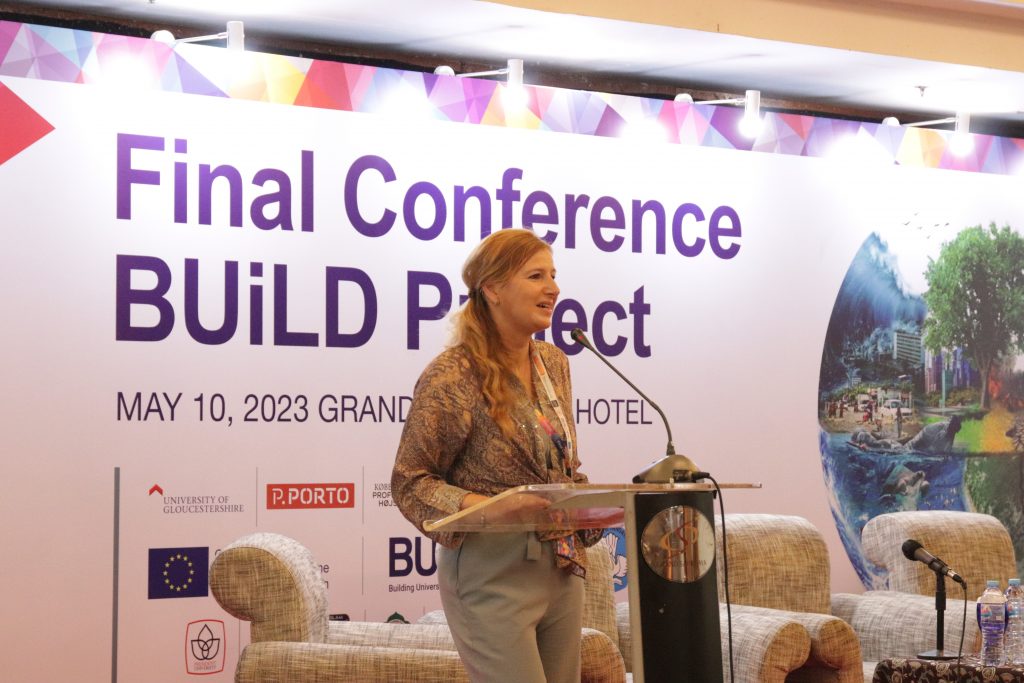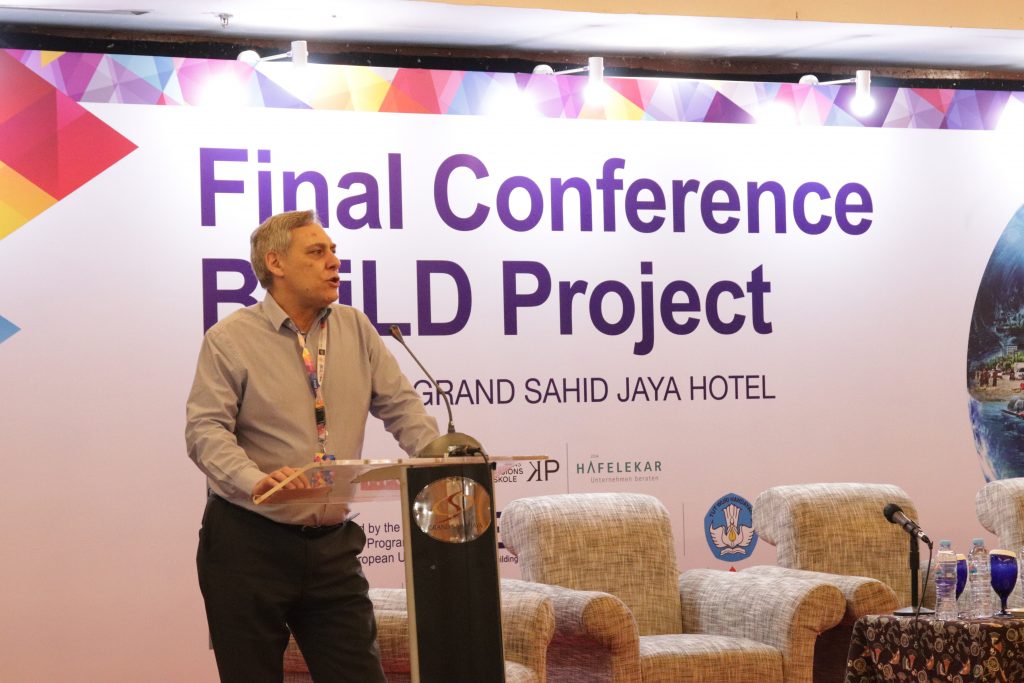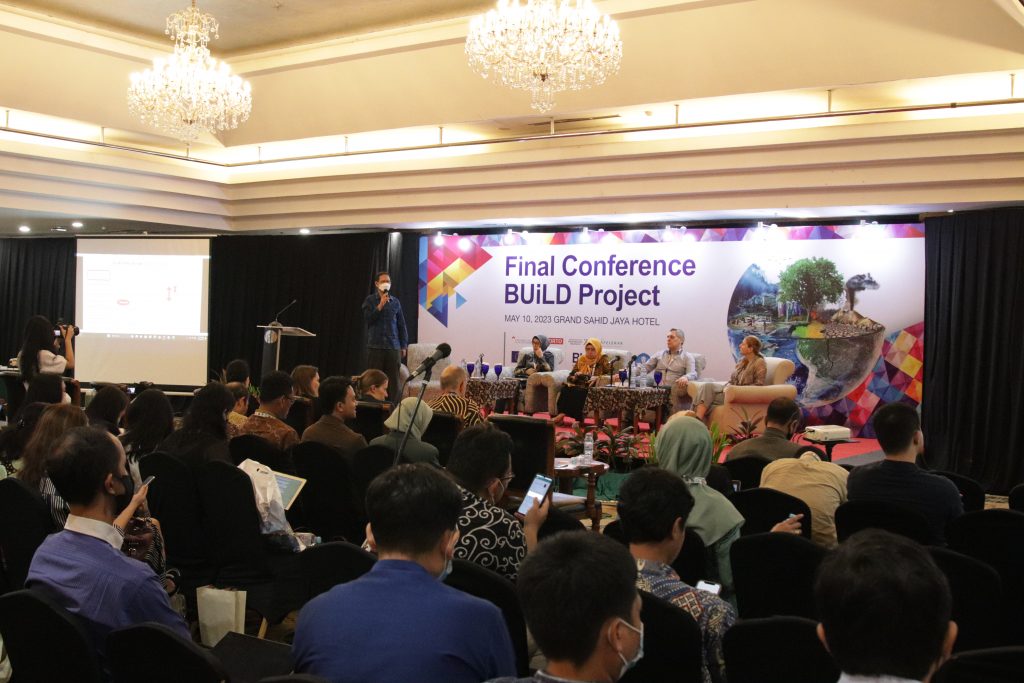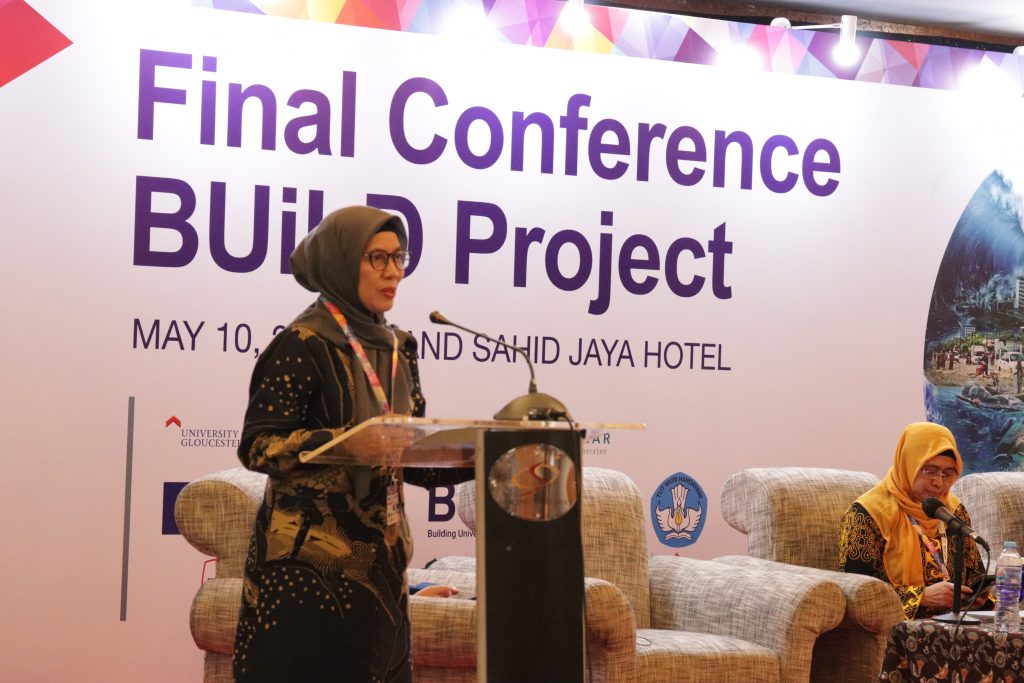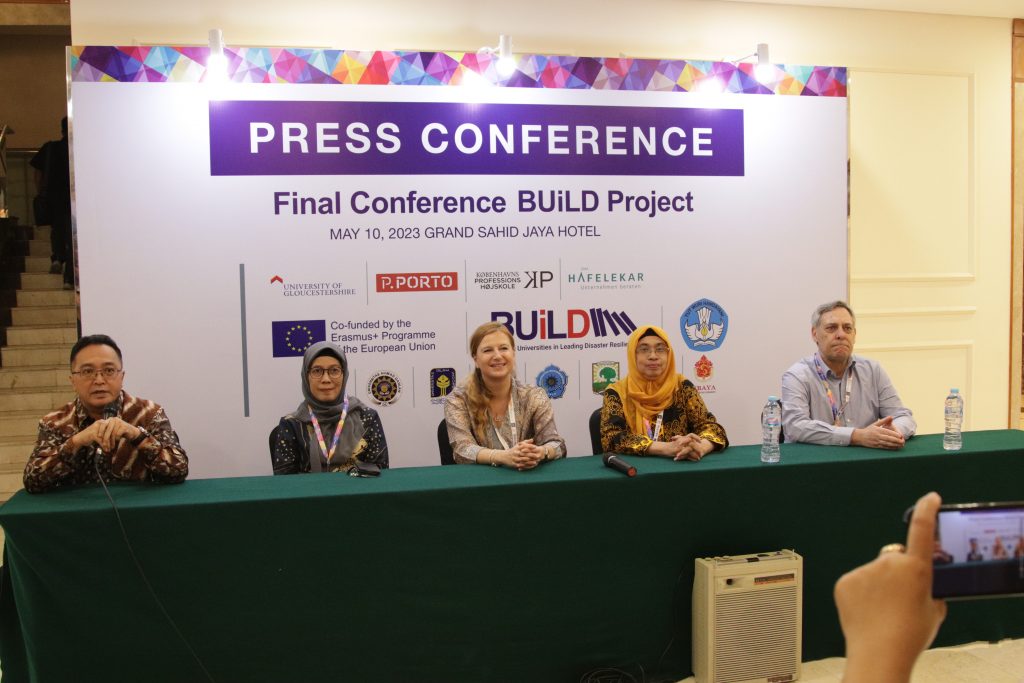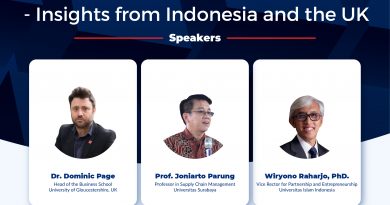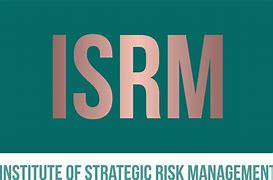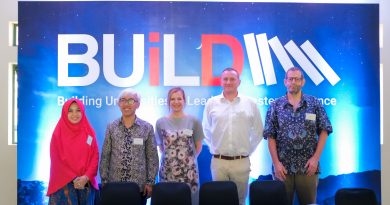Erasmus+ BUiLD Project concludes with public conference in Jakarta
After three and a half years, the Erasmus+ BUiLD project has come to the end of its official implementation period. On the 10th of May, the project concluded with a public conference under the theme “Universities as change agents in times of global uncertainty – working in partnership to build a higher education sector that delivers disaster resilience”.
The event took place at the Grand Sahid Jaya and was aimed at members of APIK Indonesia, academics, researchers, students, practitioners/environmentalists, professionals, journalists, and national institutions, as well as non-governmental organizations.
Following opening speeches by host Fennieka Kristianto, Vice Rector for Resources at President University, and Project Lead Nadine Sulkowski, participants were able to listen to a series of keynote speeches and participate in a subsequent panel debate.
The first speech was delivered by Dr David Rubens, Executive Director of the Institute of Strategic Risk Management and concentrated on the role of universities in enhancing the disaster resilience of communities. Dr Rubens emphasised the importance of developing structures and methodologies for facilitating meaningful multi-stakeholder dialogue and collaboration. He congratulated the BUiLD Project Consortium for having developed a systemic solution that delivers exactly that.
The second speaker was Dr Udrekh, Director of Disaster Risk Evaluation, at the National Agency for Disaster Countermeasure. Dr Udreh spoke about aspects of Indonesia’s disaster resilience strategy, specifically about approaches towards disaster risk mapping and the importance of academia in supporting the development of innovative technologies and risk mapping techniques.
The third speech was delivered by Dr Rahmawati Husein, Vice Chair of the Muhammdiyah Disaster Management Centre, who spoke about the role of MDMC in supporting Indonesia’s disaster management capability. She gave insights into the core activities of the MDMC and mechanisms for the mobilisation of resources for mitigation and response activities. Run entirely by volunteers and relying entirely on donations, the MDMC is working with government and other key organisations and is an example of an organisation driving multistakeholder collaboration and integration.
The final speaker was Dr Gunani Partiwi, Director of Learning and Student Affairs at the Ministry for Education, Culture, Research and Technology who gave her views on the role of higher education in disaster education. Her speech echoed much of previous speakers said when emphasising the need for a more structured multistakeholder dialogue in advancing disaster management education as well as knowledge transfer.
Dr Gunani said: “It is very important for us to work together to improve collaboration and synergies not only between the institutions in Indonesia. We are very appreciative of Erasmus and also the institutions that are collaborating here in this consortium, and hopefully, the results of this consortium will be embedded more widely across Indonesia.”
The four keynote speakers and Project Lead Nadine Sulkowski then participated in a press conference to report on the project results and their future exploitation opportunities. Meanwhile, Antonio Marques, President of European Consortium Partner P.Porto, showcased the BUiLD disaster awareness virtual reality training solution.
As part of the final conference, each of the eight BUiLD Centres of Excellence in Disaster Resilience exhibited examples of their local disaster resilience activities. Amongst the exhibitors was the Institute of Strategic Risk Management Indonesia Chapter that ran a workshop on the second day to establish future collaboration opportunities between the Chapter and BUiLD Disaster Resilience Network Matta Bencana.

